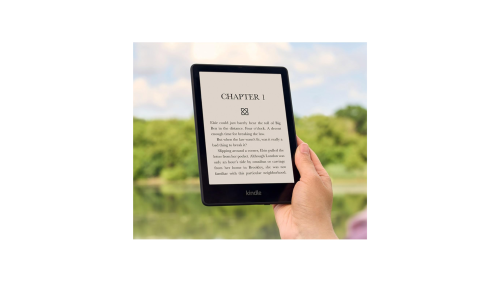The following is excerpted from “Passing the Badge: Stories from Law Enforcement” by Blake Cordell. From rural Oregon to the frozen streets of Anchorage, ride along with a police K9 handler and live adventures through his eyes. Written by a veteran police officer who not only shares his own stories but weaves in the captivating stories of his father, a former K9 handler. Order your copy here.
Keith: Yellow snow
Having a constant K9 companion is always welcome but it is a creature that has needs. Most K9 handlers would bring their dogs into the police station when they were writing reports or taking care of other business at the department. One of the dog’s needs is to go pee, which some did at the back door of the office entrance.
One of the patrol lieutenants hated it when the dogs would pee by the back door because it left unsightly yellow stains in the snow. When one dog peed there, every other dog felt the need to pee there as well in a never-ending game of one-upmanship. When one of the dogs peed by the back door, the lieutenant would come into the patrol room in a huff and chew the handler out for letting the dog pee there.
One night after seeing the lieutenant chew out a handler for letting their dog pee by the door, Keith went home and mixed up a bottle of yellow water using food dye. The next shift, when the lieutenant was working and Keith was the only handler, Keith poured his dyed water all over the snow by the back door.
Soon, the lieutenant came into the patrol room and started chewing Keith out for letting his dog pee there. Keith asked him what he was talking about, and there was no way there was pee. The lieutenant insisted Keith go with him to see the mess. They went outside and the lieutenant pointed at the yellow snow and said, “See?! Right there!”
Keith swished his finger in the yellow snow, really playing it up, getting it on his finger. Then he licked his finger, paused for a moment with a thoughtful look on his face, then declared, “Nope! Not my dog.” The lieutenant was staring at Keith through squinted eyes with his mouth twisted in disgust, and yelled out, “Eeeeeeww!”
Pain or paper
On a night shift, I kept getting calls of a car full of teenagers driving around town and throwing eggs at things, like mailboxes and retaining walls. I drove around the area but couldn’t seem to find the car out and about. I turned into a cul-de-sac and saw the car at the end, and when I lit it up with the spotlight, four boys were staring back at me, all wide-eyed. They looked so guilty that I couldn’t help but laugh as I got out of my car.
Fixing my features, I told them all to get out of the car. They sheepishly got out and shuffled into a line in front of the car. I told them to give me the eggs and one of them brought that carton out of the car and handed it to me. I asked them what they were thinking, out late at night trying to hit people’s stuff with eggs.
They stood, eyes downcast, like a row of toddlers who had stolen chocolate. One piped up and said that they didn’t hit any cars, which I knew was true. They had still hit people’s property with the eggs, which could get them all criminally cited. I noticed one of them had an Air Force lanyard hanging out of his pocket. I asked him if he was going to join the Air Force and he said yes, that he was in the process now. I knew that the Air Force would not take him if I gave him a criminal citation.
I was and still am a big advocate for not giving kids criminal citations for small things that could come back to haunt them later in life. If it was a low-level issue, I would try to find ways out of citing them. Like a fight at school where it was one on one and neither of them got hurt. I was in a ton of fights growing up and it seemed like a natural part of maturing. You learn quickly what peer on peer consequences are during a fight. Things that went too far, like bullying or two people on one, I would address with citations.
If a kid got in trouble by the school over a low-level issue, I wouldn’t cite them for the same offense. I would assert that the school’s punishment was the government taking action, so there was no need for a citation. There were a couple of times I had to defend this point of view from a member of the public or a supervisor, but I stood my ground. If I could think of an alternative “punishment” that dealt with the issue non-criminally, I tried to do that instead.
I asked the boys, “Pain or paper?” and enjoyed the confused looks they gave me. After one of them cautiously asked, “What?” I explained that in the Army, there is a question that senior Soldiers ask a junior Soldier who screwed up, and that question was, “Pain or paper?” It meant that the Soldier could be written up or disciplined in a formal way that stuck on their record, or the issue could be resolved with some creative exercises of an intensity and length that the lesson was learned.
I opened the carton and saw that 5 of the 18 eggs were missing. I told them that I could issue them a citation for Criminal Mischief, or they could do 10 pushups for each missing egg and that would be the end of it. They looked at me for a moment to see if I was serious and then looked at each other to silently make a group decision. The Air Force aspirant spoke up and said they would do the pushups.
Relieved that I wouldn’t have to cite them, I smiled and said, “Good!” They all got into a pushup position, waiting for me to tell them to start. I opened the carton of eggs and set it in front of them so they could see their shame as they did their pushups.
I didn’t want to get accused of hazing the kids or being abusive. I told them I would keep count and got into a pushup position in front of them. I was going to do the pushups too, but in my gun belt and body armor. Since I was wearing way more than them, no one could say I was being unfair. They started giggling at their odd circumstances.
I began the cadence for us all to do the pushups and kept count. I almost started laughing out loud at the thought of someone looking out of their window to see a cop and a group of teenage boys doing pushups in their cul-de-sac in the middle of the night. The carton of eggs in the middle of us added a bit of mystique, like we were an exercise cult performing a ceremony. “Hail protein! May he giveth gains.”
Another officer arrived and stood, utterly confused, at the edge of the ceremony. I almost burst out laughing, but didn’t want to spare the breath. I could not let the boys beat me in the pushups, nor could I give up because I would look like a chump.
Towards the end, a couple of them started getting tired and taking breaks. I cajoled and encouraged them to keep going. Fifty pushups later, we got up and I admonished them to make better decisions in the future and that I was keeping their eggs. They heartily agreed, and after the exercise they were not feeling scared or intimidated anymore. We all shook hands and they said they were going home, which I told them was a good idea.
I didn’t want to keep the eggs for myself, nor did it make any sense to just throw them away. I took them to the local homeless shelter and gave them to the night supervisor so they could use them in the kitchen for breakfast.
Keith: Never off duty
Keith was at home, off duty, cleaning his take home patrol car for the next week’s shift. He heard on the police radio that two officers were just shot downtown at a barber college. Keith immediately threw on his police jacket, not taking the time to get on his kevlar vest, and responded to help.
Keith knew that a prison escapee who was in prison for kidnapping and attempted murder had made his way to Anchorage. There were “sightings” of the fugitive all over Anchorage and the police checked every one. Keith later learned the fugitive went into a barber college to get his hair cut and one of the barber students recognized him from an FBI Most Wanted poster.
Two officers teamed up to go check on the sighting and discovered it was indeed the fugitive. He was sitting in the barber chair getting a haircut. The officers entered the barber college with their guns drawn and held the fugitive at gunpoint until he complied. They holstered their guns and moved forward to pat the fugitive down. He was still sitting in the barber chair, so one of the officers lifted the barber smock and patted him down, finding no weapons. The fugitive was calm, friendly, and initially did not act aggressively at all.
The officers began to escort the fugitive out of the barber college for questioning when he tried to bolt and run. One of the officers grabbed him from behind to stop him and he fought back, managing to grab one of their guns. He opened fire, hitting the disarmed officer in the buttocks, causing him to fall to the ground. The other officer tried to fall back and return fire, but the fugitive spun around and shot the officer, hitting him in the shoulder. The officer hit in the shoulder fell and tried to crawl behind a counter for cover.
The officer hit in the buttocks saw the fugitive advancing on his partner to finish him off. Although he was disarmed and almost incapacitated, the officer selflessly started kicking the fugitive from the ground, trying to save the other officers life. The fugitive stood over the fallen officer and tried to shoot him in the head, but hit his neck instead. The fugitive fled the barber college on foot, firing another shot at the officers as he went. The officers underwent surgery and both lived.
What unfolded after was one of the largest manhunts in Anchorage history. Almost every single officer employed by the department reported for duty and the SWAT team was deployed. The neighborhood was cordoned off and more sightings of the now confirmed to be armed fugitive were reported. This resulted in SWAT assaulting two buildings where he was hiding, using teargas and flashbangs, but he kept managing to slip away. Keith found an intersection to set up in to help with the cordon. He left his car in the intersection and went on foot to a nearby alley between two apartment buildings to keep watch. He heard a K9 team tracking nearby, it was K9 Khan the Rottweiler.
Keith looked back at his car and realized he left his door open. He hurried to the car, locked the doors, and returned to the alley. A moment later, Khan and his handler tracked into Keith’s alley and up to him. The handler asked Keith if he had been there the whole time or if he had left at all. Keith told him he left for a just a moment to lock his car but was only gone for a matter of seconds.
They looked around and saw a line of parked cars behind them. Keith realized that since it was dark out, the fugitive must have been watching him from the alley and when Keith left, the fugitive ran down the alley. Keith told the other handler that the armed fugitive had to be under one of the cars, there was no time to run anywhere else.
The handler had Khan start checking the cars and Keith began looking under them as well. Keith spotted the dangerous fugitive lying under an orange van and Keith brought his gun up to shoot the man before he could ambush anyone else. Keith began his trigger squeeze when from the other side of the van, Khan found the fugitive and dove under the van and bit him. Khan, weighing in at least 100 pounds, swiftly pulled the fugitive out from under the van before Keith could get a shot off.
Keith sprinted to the other side of the van just as Khan got the man out from under it. In what seemed like slow motion, the fugitive raised the gun and pointed it at Khan’s handler. Although trained to never let go of a bite, Khan released the bite on the man’s lower body and switched to the arm with the gun. The enormous force of Khan’s bite knocked the gun out of the would-be murderer’s hand, saving his handler’s life.
As officers converged on their position, the fugitive still fought being taken into custody. Another officer arrived with a shotgun to cover Keith and the K9 handler as they got the fugitive’s hands under control and in handcuffs.
During sentencing, the judge stated of the fugitive, “"There is virtually no one who could be deemed more dangerous.” Noting that the fugitive had “Established a track record of violence.” The fugitive was ultimately sentenced to 46 years in prison for this series of crimes, to be served after his original sentence of 20 years was up.
About the author
Blake Cordell grew up reading as many books as he could get his hands on. This left an impression on him that the world was not limited to what was around him because the imagination was a powerful thing. An idea grew that one day he could write books, but it took a back seat to life for a few years.
Seeing his dad, Keith, go to work everyday as a police officer, Blake wanted to follow in his footsteps. Getting hired at a police department when he was 20, Blake had to wait until he turned 21, so he could hit the streets. The next several years of his life were a hurricane, as it is for new police officers. One thing that kept popping up was the realization that people were insatiably curious about the police, and police stories. Most people knew what law enforcement does generally, but like with any profession, they don’t understand what their officers experience.
One day, Blake came across a quote by Benjamin Franklin, “If you would not be forgotten, either write things worth reading, or do things worth writing.” The quote stuck with him over the next few months, reemerging and occupying his mind, so Blake began writing down his stories. Having grown up hearing his dad’s stories, which were funny, insightful, and exciting, he wanted to include them in the book. Sitting in the living room together, they swapped tales and laughs, while Blake took notes and listened to his dad tell his stories. The experience was cathartic for both of them, because they could bond as professional police officers and K9 handlers.
Keith led an exciting life, starting as a Forest Patrol Deputy in Oregon, later joining the Marine Corps and earning his spot as a Reconnaissance Marine. Keith was shortly after hired by the Anchorage, Alaska Police Department where he served as a patrol officer, K9 Handler, Detective, and Sergeant. Keith retired from APD after 17 years of service. Blake named the book “Passing the Badge” because Keith passed the badge to Blake, pinning Blake’s first badge on. Blake metaphorically passed the badge to the new generation of police officers with each officer he trained.
Working on the book off and on over the span of a few years, Blake wasn’t even sure anyone would want to read it. Allowing some friends and family to read the book, the reception was strong and they encouraged him to publish it. Disheartened by the negativity recently expressed about the police, Blake wanted to show people that nearly all law enforcement professionals are good people who do this work for the right reasons, so he published the book. The reviews and feedback Blake has gotten is overwhelmingly positive, with people expressing how enlightening it was to read about what police officers go through.
A reader lent the book to their friend, telling them, “Do not start it unless you have time to sit down and finish it. Seriously, I could not put it down.”
Find Blake’s website here: https://blakecordellauthor.com
“Passing the Badge” can ordered from Amazon here.







